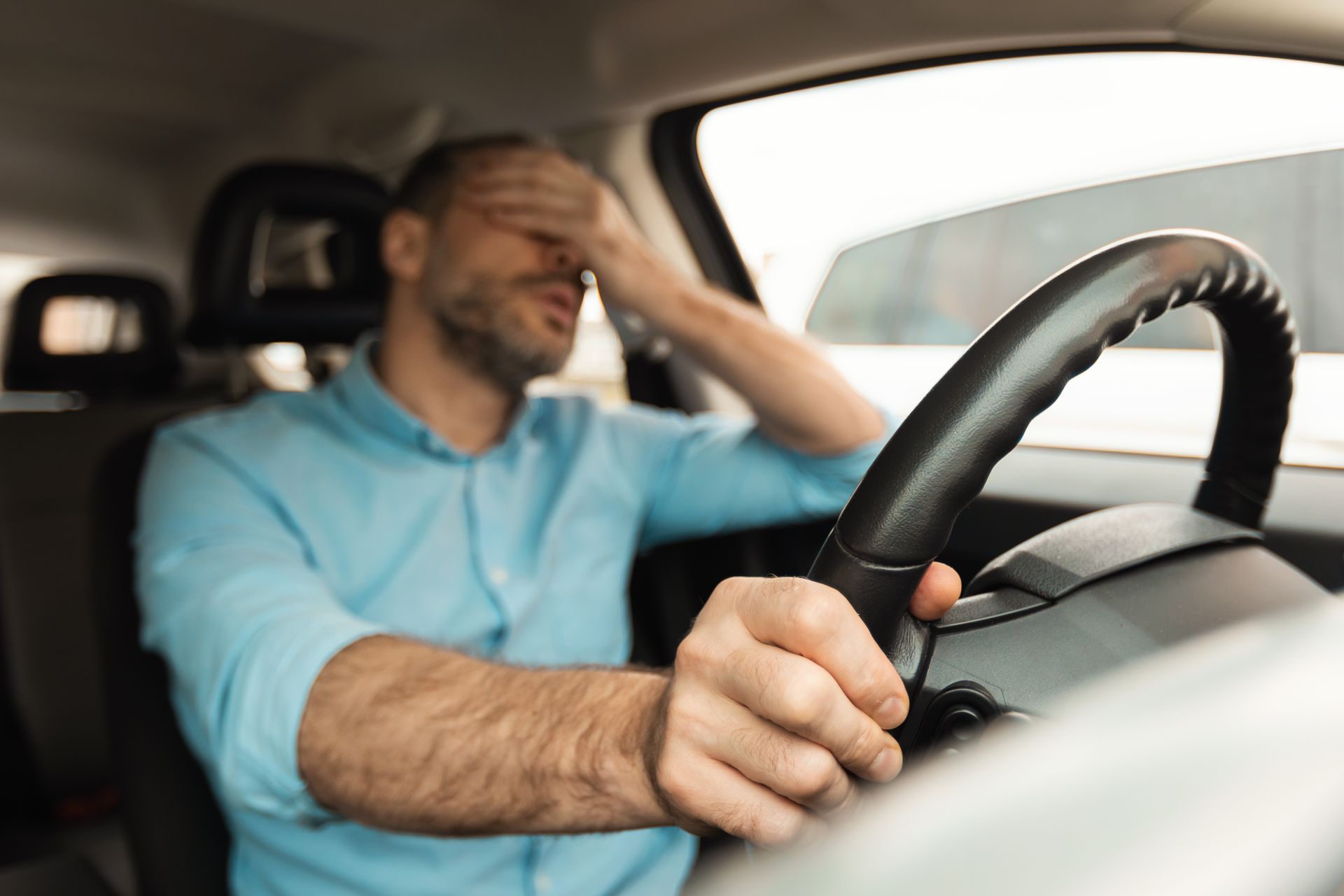How Do I Manage Driving Fatigue and Stay Alert on the Road?
Tips for Staying Safe Behind the Wheel and
Preventing Fatigue-Related Accidents
Driving fatigue is one of the most overlooked yet dangerous risks on the road. It affects thousands of drivers every year, leading to accidents that could have been avoided. Fatigue can impair reaction times, concentration, and decision-making, much like alcohol or drugs. Knowing how to manage fatigue and stay alert is essential for every driver. In this blog, we’ll discuss the causes of driving fatigue, signs to watch for, and practical tips for staying alert and safe while driving.
Why Driving Fatigue Is a Serious Concern
According to the National Highway Traffic Safety Administration (NHTSA), drowsy driving causes thousands of accidents annually. In fact, it is estimated that one in five crashes involves a fatigued driver. Driving while fatigued can lead to slower reflexes, reduced awareness, and even falling asleep at the wheel. When you’re tired, your body and mind struggle to stay focused, making you more likely to miss important signs or react too slowly.

Signs of Fatigue While Driving
Recognizing the signs of fatigue early can help you avoid dangerous situations. Common signs include:
- Frequent yawning
- Difficulty focusing or keeping your eyes open
- Drifting between lanes or off the road
- Feeling irritable or restless
- Slower reaction times
- Nodding off or having trouble remembering the last few miles driven
If you notice any of these signs, it’s crucial to pull over and take a break. Driving while fatigued is just as dangerous, if not more so, than driving under the influence of alcohol.
How to Manage Driving Fatigue and Stay Alert
There are several strategies you can use to manage fatigue and stay alert while driving:
Get Enough Sleep Before You Drive
The best way to prevent fatigue while driving is to ensure you're well-rested before you get behind the wheel. Try to get 7-9 hours of sleep before a long trip. If you’re feeling tired before driving, consider postponing your journey or finding another way to get to your destination.
Take Regular Breaks
If you're driving for long periods, make sure to stop and rest every two hours or so. Stretching your legs, grabbing a snack, and taking a short walk can help refresh you. This is especially important on long road trips.
Stay Hydrated and Eat Healthy Snacks
Dehydration and poor nutrition can worsen fatigue. Drink plenty of water and eat small, healthy snacks to maintain your energy levels. Avoid heavy meals, especially foods high in sugar, as they can make you feel sluggish.
Avoid Driving at Night or When You’re Sleepy
Nighttime driving, or driving when you’re already tired, significantly increases your risk of falling asleep behind the wheel. If you feel sleepy, it's always best to pull over and take a nap. A quick 20-30 minute power nap can improve alertness without making you feel groggy.
Have a Travel Companion
If possible, travel with a passenger who can share the driving duties. Having someone else drive can give you a chance to rest, and they can also keep you engaged and help reduce boredom.
Use Caffeine Wisely
Caffeine can help boost your alertness, but it’s important not to rely on it. If you drink coffee or an energy drink, wait about 30 minutes to an hour for the caffeine to kick in before you get back on the road. Be cautious, as caffeine effects can wear off and lead to a crash in energy.
Stay Engaged
Engage with your surroundings and stay mentally active. If you’re driving alone, try listening to upbeat music or an interesting podcast to keep your mind engaged and prevent drowsiness.
Know When to Stop
If you notice any of the signs of fatigue, don’t push through. Find a safe place to pull over and rest. A few minutes of rest can save your life and the lives of others on the road.
Driving fatigue is a serious issue that should never be underestimated. It’s essential to understand the risks and take steps to ensure that you stay alert while behind the wheel. By getting enough rest, taking regular breaks, and staying hydrated, you can minimize your chances of fatigue-related accidents. Always be aware of the signs of fatigue and know when to stop. Your safety and the safety of others depend on it.
If you or someone you know has been involved in a car accident caused by fatigue or drowsy driving, contact us today for help.
We can guide you through the next steps and help you recover any damages or compensation you may be entitled to.
Stay safe on the road!

